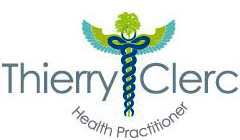This article was commissioned by a health organisation based in India, which promotes homeopathy to the wider public. Thierry Clerc practices in Cambridge (UK) as a clinical homeopath and a nutritionist. He is a regular contributor of several national and international health magazines.
What are hemorrhoids?
Hemorrhoids, also known as “haemorrhoids” or “piles” are the result of swelling and protrusion of a group of veins, called the “venous plexus”, which are located in and around the rectum. In summary, these are varicose (swollen) veins, located internally or externally to the anus. They can be painless, but sometimes, especially after stool, the swollen veins can trigger pain or even bleeding.
What can cause pain and hemorrhoids?
Constipation and straining at stool can contribute to haemorrhoids. However, there are usually merely a symptom to deeper problems that cause blood congestion in the veins. This creates back pressure in these veins around the rectum.
So, what can cause blood congestion in this part of the body? The most common causes are:
– weakness and sluggishness of the liver: this is the most common for men, and also more and more often with older women, and is partly a result of poor diet and overall toxicity. Hold on your alcoholic drinks and change your diet!
– weakness of the valves and the walls of the veins of the venous plexus: this is usually more complex, and takes longer to eliminate, as this is caused by multiple issues, which includes most of the time diet. However, a series of consultations with a professional health practitioner should put you on the right track.
– weakness and sluggishness in the uterus: this slows down the veins’ circulation, and explains why haemorrhoids can occur in pregnancy or after labour.
What are the best ways to address them?
A thorough consultation with a qualifed health practitioner with a medical training should allow to set a support plan that will fully clear the haemorrhoids. Usually, if both the digestive system and the liver are well assisted, then haemorrhoids would tend to go easily by themselves, usually in less than a month.
If bleeding occurs recurrently, then, a holistic approach may take up to three to six months, and in this case, some clients can consider to have the veins tied off. However, even in this case, it is important to understand that if the main issues are not addressed, then hemorrhoids are likely to come back.
Thank you for your time.
Thierry Clerc, MARH, RHom, MSc
Registered Health Practitioner
Clinical Homeopathy, Bioresonance, Nutrition & Allergy

